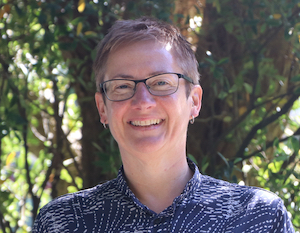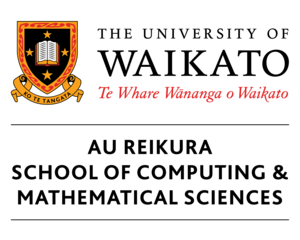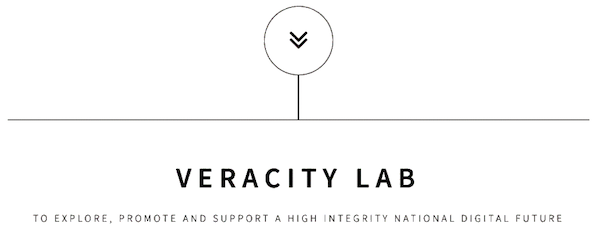Program and Registration
Registration is now open!:
REGISTER
Price:
NZD $50.00
Student registrations are free for those attending the symposium (details below).
Program
| Time | Event | Location |
|---|---|---|
| 9:30 - 10:00 | Registration | Room: Te Manawaroa (TCBD.1.07) Tauranga Campus, University of Waikato 101-121 Durham Street, Tauranga 3110, NZ |
| 10:00-10:15 | Opening | |
| 10:15-11:15 | Keynote: Assoc. Prof. Judy Bowen, From There to Here (and back again) | |
| 11:15-11:30 | Morning Tea | |
| 11:30-12:30 | Keynote: Prof. John Grundy, Research Funding in NZ | |
| 12:30-13:45 | Lunch | |
| 13:45-14:45 | Cultural Campus Tour | |
| 14:45-15:45 | Session #2 Assoc. Prof. Kelly Blincoe, ENGclusion Soraya Hebert, STEM Wana Jay Tihema, Toi Kai Rawa |
|
| 15:45-16:00 | Afternoon Tea | |
| 16:00-17:00 | Session #3 Dr. Sapna Jaidka, Modelling and Testing for Better Outcomes Dr. Alvin Yeo, Community Engagement Final Discussion + Wrap up |
|
| 17:00-18:00 | Reception |
Keynotes

Assoc. Prof. Judy Bowen, University of Waikato, New Zealand
Title: From There to Here (and back again)
Abstract: Software Engineering is a diverse field with researchers and practitioners often working in different sub-disciplines, however, they typically share common perceptions of the foundations of the discipline which they apply within their own contexts. My own research focusses on the design and development of interactive and ubiquitous systems guided by relevant software engineering principles from HCI, formal methods and testing. In this talk I will describe what software engineering means in the context of my work, where I started from, where I’ve ended up and why the things I focus on matter in the wider context of software evolution.
Bio: Judy Bowen is an Associate Professor in Software Engineering and Computer Science at the University of Waikato. Originally from South Wales, Judy moved to New Zealand in 1999 and completed her MSc and PhD at the University of Waikato, both in the area of the use of formal methods for interactive system design. Her research spans the disciplines of software engineering and human-computer interaction and focusses on interactive system design, model-driven development and testing. Recently her research has focussed more on the impacts of ubiquitous technology, wearable technology and IoT solutions on end-users.
–

Prof. John Grundy, Monash University, Australia
Title: Research Funding in NZ
Bio: John Grundy is Australian Laureate Fellow and Professor of Software Engineering in the Faculty of Information Technology, Monash University, Melbourne, Australia. His research interests include automated software engineering, human-centric software engineering, software performance and security engineering, and computing education. His teaching focuses on final year team industry capstone and research projects. He is Fellow of Engineers Australia and Fellow of Automated Software Engineering, Senior Member of ACM and IEEE, Chartered Engineer and Engineering Executive. He has received the ACM SIGSOFT Distinguished Service Award, CORE Distinguished Service Award and IEEE TCSE Distinguished Educator Award.
SI^NZ workshop 2024 Student Symposium
Call for Submissions
The Student Symposium aims to provide a helpful and stimulating forum for current postgraduate students (PhD and Masters) to present and discuss their research proposals and early research results. Experienced members of the SI^NZ community will serve as advisers to provide constructive feedback on the research proposals. Participants must be current postgraduate research students, preferably those who have identified their research topic and progressed on initial results. However, other students are also welcome to attend.
Students must submit a two-page, single-authored abstract (see the submission format below). The submission should include the following elements: the research problem and motivation, background and related work, approach and novelty, results (if any), and contributions. The review process is not anonymous - there is no need to anonymise the submission.
A panel of experts will review the submissions and select the students to participate in the Students’ Symposium. Students of accepted submissions will present their research to the panel (and other students) during the symposium. The abstract will not be published.
Important dates
Submission: May 20th, 2024
Notifications: May 31st, 2024
Submission
Please submit your papers via EasyChair using the following link: https://easychair.org/conferences/?conf=sinzstudentsymposium0
All submissions should use the official ACM Primary Article Template https://www.acm.org/publications/proceedings-template.
Students can register for free through the eventbrite page, select the “Student Symposium” option and check out.
Schedule
Students will be able to attend the main session with the symposium taking place during Sessions 2 and 3 of the program. The student symposium schedule is as below:
| Time | Event | Location |
|---|---|---|
| 14:45-15:45 | Session #2 Negar Hashemi, Identifying and Mitigating Flaky Tests in JavaScript Hongming Zhang, Model and Tool Selection for Enhancing IoT platform Interoperability Sanaz Zamani, Improving Emotional Well-being and Managing Depression through IoT Technologies |
Room: TCBD.2.12 |
| 15:45-16:00 | Afternoon Tea | Room: TCBD.1.07 |
| 16:00-17:00 | Session #3 Faith Mathuranayagam Culas, Advancing Cognitive Inclusivity in Software Engineering Tools and Practices Zane Hamilton, Scoring of the Landing Error Scoring System using Inertial Measurement Units Final Discussion + Wrap Up in Te Manawaroa |
Room: TCBD.2.12 |
Code of Conduct
Software Innovation New Zealand is committed to providing a welcoming space for all attendees. A primary goal of our workshops and seminars is to promote the open exchange of ideas and the freedom of thought and expression among software engineering researchers in Aotearoa. These require an environment that recognizes the inherent worth of every person and group; fosters dignity, understanding, and mutual respect; and embraces diversity.
For these reasons, Software Innovation New Zealand is dedicated to providing an inclusive harassment-free experience for participants at our events and in official communications channels, including social media. We want every participant to feel welcome, included, respected, and safe. There is no tolerance for unwelcome or hostile behaviour or speech that intimidates, creates discomfort, or interferes with a person’s participation or opportunity for participation at our workshop and events.
Please see the following for the workshop’s full code of conduct policy: Code of Conduct.pdf ⬇️
Location
This year the University of Waikato will host the workshop at its Tauranga Campus (101-121 Durham Street, Tauranga 3110). Attendees can fly into Tauranga Airport’s domestic terminal and use local Taxi options for direct transfer. Alternatively, buses are available a 10-minute walk from the airport on Hewlett’s road. Those travelling by car will be able to find several paid on-street and parking buildings nearby, the closest of these is the Spring Street carpark. Limited free parking is available at a further distance from the campus. Please see the Tauranga City Council’s website for fee details: Parking Fees.
Organizers
Jessica Turner
University of Waikato, Tauranga, New Zealand
Judy Bowen
University of Waikato, Hamilton, New Zealand
Jemma König
University of Waikato, Hamilton, New Zealand
Student Symposium Chairs

Dhanushka Jayasuriya
University of Auckland, Auckland, New Zealand
Zane Hamilton
University of Waikato, Tauranga, New Zealand





